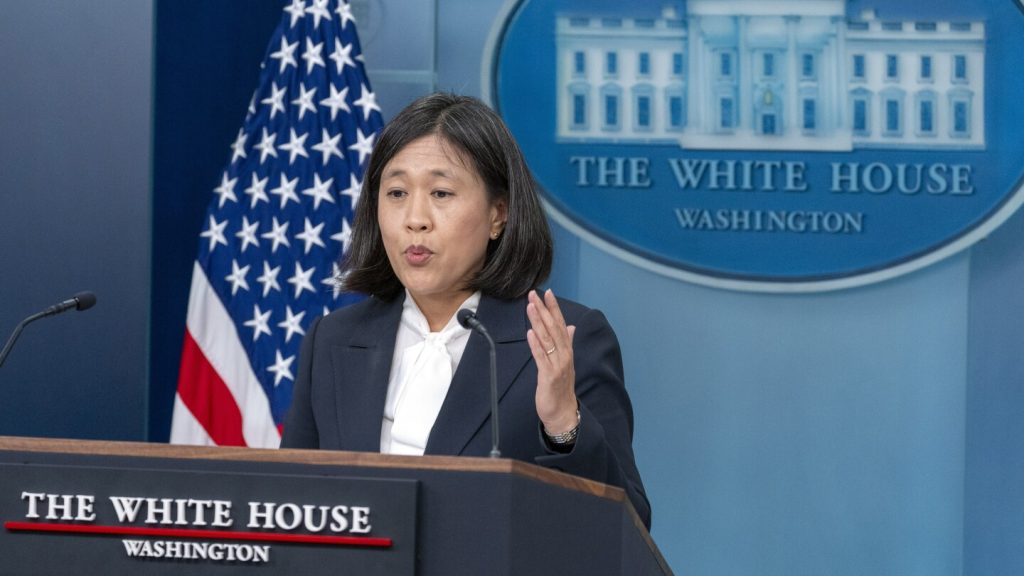The Biden administration is considering imposing additional penalties on Chinese electric vehicle makers if they try to move their production to Mexico to avoid newly announced import taxes. President Joe Biden directed the U.S. Trade Representative to impose a total tariff in excess of 102% on Chinese EVs, as well as new tariffs on other products like steel, aluminum, computer chips, and solar cells. Chinese EV company BYD has shown interest in factory sites in Mexico for the Mexican market, potentially using Mexico as a backdoor into the U.S. market. U.S. Trade Representative Katherine Tai mentioned that any penalties for Chinese companies using Mexico as a workaround would require a separate pathway from the Section 301 review of the Trade Act of 1974, which led to tariffs on $18 billion worth of Chinese imports announced on Tuesday.
The U.S. Trade Representative’s office stated that they could take various actions other than tariffs to address the situation, citing provisions within the U.S.-Mexico-Canada Agreement to address unfair subsidies and efforts to avoid import duties. Tai emphasized that the issue of Chinese companies moving their production to Mexico to circumvent tariffs is something they are discussing with industry, workers, and partners. The administration is closely monitoring the situation and has not ruled out the possibility of implementing additional penalties if necessary. The potential use of Mexico as a way for Chinese companies to access the U.S. market is a concern, and the administration is prepared to take action to address it.
There is uncertainty about the future of Chinese EV makers’ plans to move production to Mexico and avoid U.S. import taxes. The Biden administration is keeping a close eye on the situation and is considering various options to prevent Chinese companies from circumventing the newly announced tariffs. The issue raises concerns about fair trade practices and ensuring that all countries follow trade agreements. Chinese companies using Mexico as a backdoor into the U.S. market could have significant implications for the automotive industry and trade relations between the U.S., China, and Mexico. The administration is working to address these concerns and take appropriate actions to uphold trade regulations.
The potential for Chinese EV makers to shift production to Mexico comes at a time of heightened trade tensions between the U.S. and China. The Biden administration has been taking a tough stance on trade issues, including imposing tariffs on Chinese imports and considering additional penalties for companies that try to evade these tariffs. The use of Mexico as a workaround raises questions about the effectiveness of current trade policies and the need for international cooperation to address trade challenges. The administration is working to ensure that all countries comply with trade agreements and prevent any unfair practices that could harm U.S. industries and workers.
The implications of Chinese companies using Mexico as a way to access the U.S. market go beyond just the automotive industry. It raises broader concerns about the global trade landscape and the need for comprehensive trade policies that address these challenges. The Biden administration’s response to this potential threat reflects its commitment to protecting American industries and workers from unfair trade practices. By considering additional penalties for companies that try to evade import taxes, the administration is sending a strong message that it will not tolerate any efforts to circumvent trade regulations. The situation highlights the complexities of international trade and the importance of proactive measures to address emerging threats to fair trade practices.


